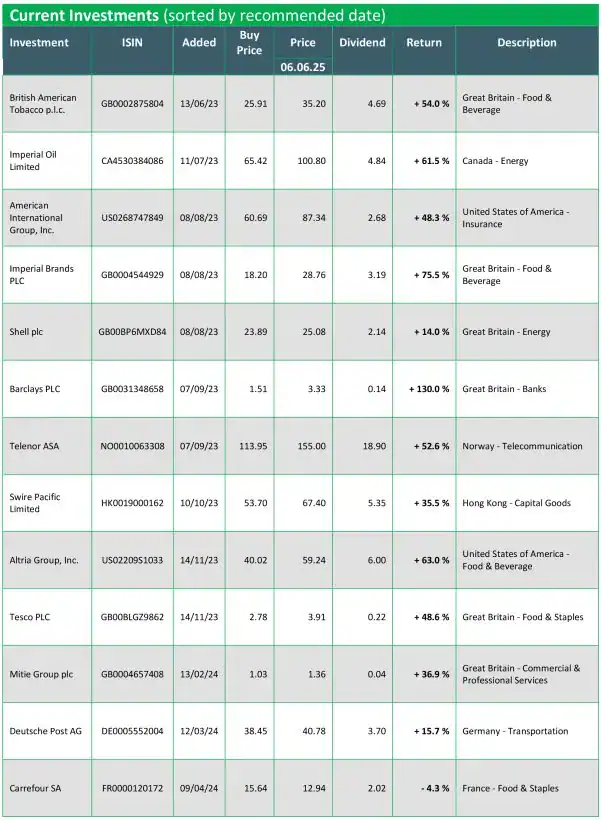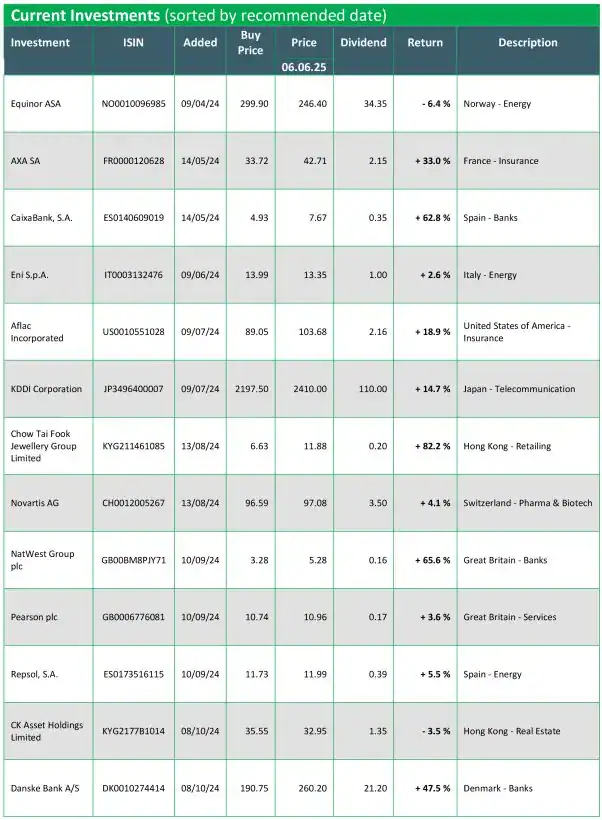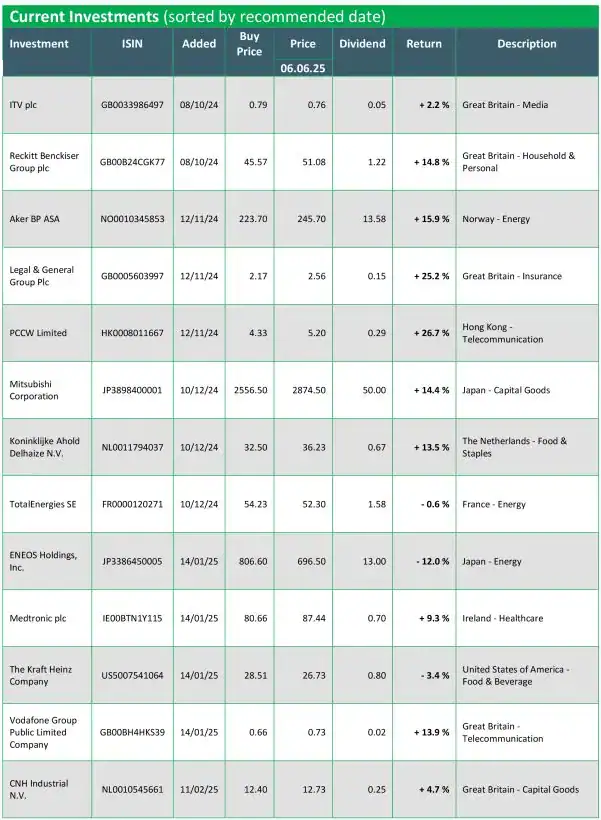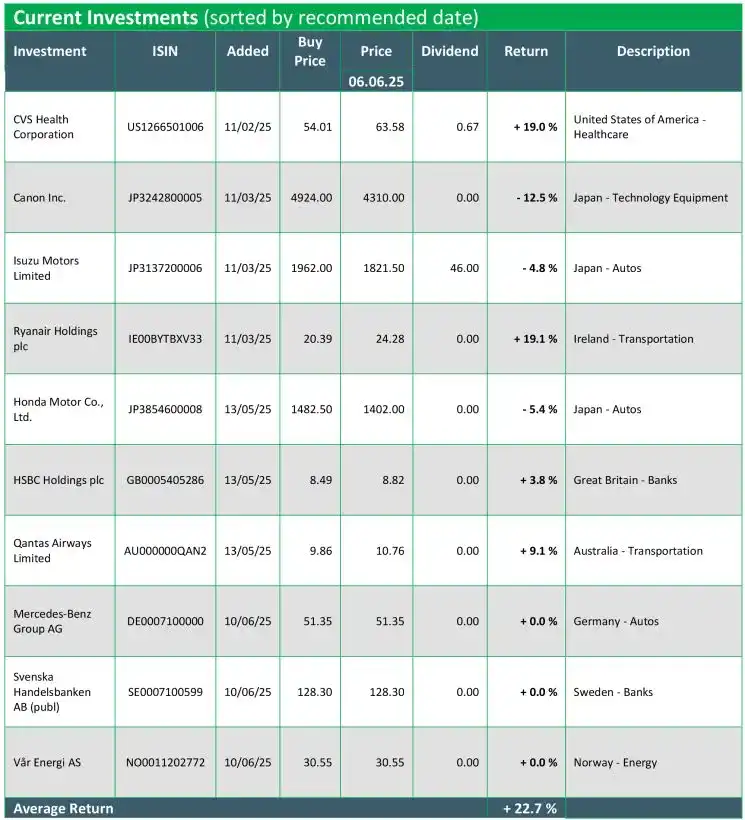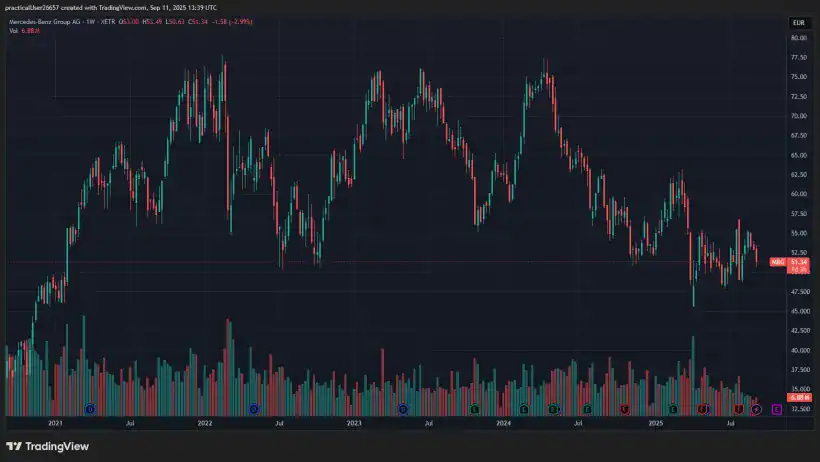Quant Investing’s Shareholder Yield Letter for the month ended June 30, 2025. Below is an excerpt from the issue which is published by the famous analyst Tim Du Toit, creator of Quant Investing.
Disclosure: – I know Tim for over a dozen years and like his work and thought readers would be interested in seeing excerpts from his newsletters so I asked if I could share it with readers. This post contains affiliate links so we may earn a few if you purchase.
Also see:
- Shareholder Yield Letter
- Shareholder Yield Stock Profile: Svenska Handelsbanken
- Shareholder Yield Stock Profile: Var Energi
- Quant Value Newsletter
See the excerpt from Mercedes below.
Invest smarter with the Shareholder Yield Letter, explore unbeatable value on our pricing, and supercharge your stock picks with the screener. Subscribe today and take your portfolio to the next level.
Mercedes-Benz Group AG – Germany
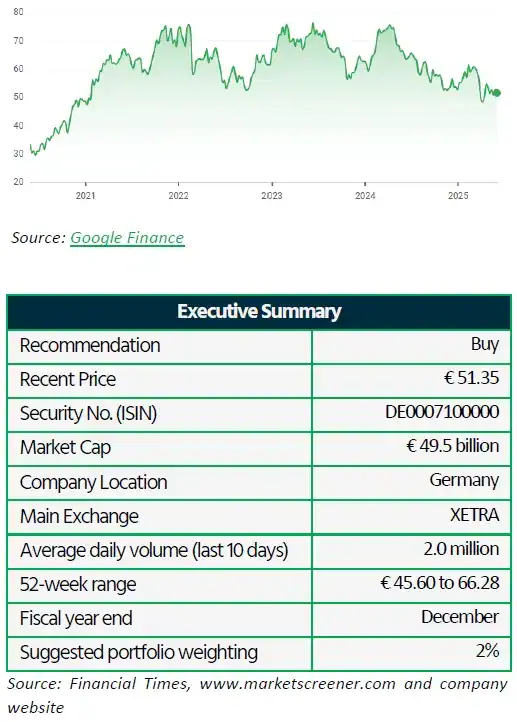
Description
Mercedes-Benz Group AG (Mercedes-Benz) is a leading global automobile manufacturer headquartered in Stuttgart, Germany.
The company is recognized for its long-standing legacy in engineering premium individual and light-duty vehicles, as well as offering financial and mobility services to support its automotive business.
Segment Information
Mercedes-Benz comprises the below segments:
- Mercedes-Benz Cars (74.0% of FY2024 sales): This segment develops and manufactures premium and luxury cars. In addition to the Mercedes-Benz brand, the brand portfolio of this segment encompasses the brands, Mercedes-AMG and Mercedes-Maybach, as well as the G-Class product brand.
- Mercedes-Benz Vans (13.3% of FY2024 sales): This segment comprises the sales of vans, which are sold under the Mercedes-Benz brand. Corresponding spare parts and accessories are also sold.
- Mercedes-Benz Mobility (17.2% of FY2024 sales): This segment supports the sales of the Mercedes-Benz Group’s automotive brands worldwide. The product range primarily includes customized mobility and financial services; and
- Reconciliation Adjustments (-4.5% of FY2024 sales): This mainly includes equity investments not allocated to the segments (e.g. Daimler Truck Holding AG) and items at the corporate level. In addition, the reconciliation includes the effects on earnings of eliminating intra-Group transactions between the segments.
Sales by Geography
Geographical distribution of sales for the full year ended 31 December 2024 is as follows:
- Europe (excluding Germany): 25.4%
- United States: 24.0%
- China: 15.9%
- Germany: 14.9%
- Asia (excluding China): 11.3%
- North America (excluding U.S.): 2.8%
- Other Markets: 5.7%
Market Presence
Mercedes-Benz is globally recognized as a symbol of automotive luxury and performance. Through its three prestigious brands – Mercedes-Benz, Smart, and Maybach, the company maintains a significant global footprint in the premium car segment.
Management and Shareholding
While the board and management oversee the company, no managers or board members have significant personal shareholdings in the company.
Significant shareholders include institutional and external investors like:
- Beijing State-Owned Assets Supervision & Administration, who holds 9.98% of the company’s shares valued at €5,732 million; and
- Shu Fu Li, a Chinese billionaire entrepreneur and the founder and chairman of Geely, one of China’s largest private automobile manufacturers who holds 9.69% valued at €5,565 million.
Share Buyback Programs
Between March 2023 and November 2024, the company repurchased and cancelled 107 million shares, representing approximately 11.1% of the total outstanding, at a cost of €6.99 billion. In February 2025, the Supervisory Board approved a new buyback of up to €5 billion over 24 months, contingent on renewed shareholder authorization in May 2025.
In Q1 2025, 0.9 million shares were repurchased for €56 million under employee share plans to be reissued to employees as employee shares.
Dividend Policy
Mercedes-Benz pays dividends annually.
The company has proposed a dividend of €4.30 per share for the full year ended 31 December 2024, down 18.9% from €5.30 per share paid during the prior year period.

Recent results
For the three months ended 31 March 2025, sales declined by 7.4% to €33.2 billion from €35.9 billion during the same period in 2025, primarily due to negative net pricing effects, lower unit sales across segments, and decreased component business with Beijing Benz Automotive Co., Ltd. (BBAC).
Earnings before interest and taxes (EBIT) fell by 40.7% to €2.3 billion from €3.9 billion reflecting lower sales volumes, reduced used car remarketing results, and lower BBAC equity income.
Adjusted EBIT, excluding impairments related to the sale of Argentina operations and minor legal-related adjustments declined by 29.2% to €2.5 billion from €3.6 billion).
Net profit decreased by 42.8% to €1.7 billion (Q1 2024: €3.0 billion), leading to a 39.2% drop in earnings per share to €1.74 (Q1 2024: €2.86).
The average number of shares outstanding dropped to 962.9 million (Q1 2024: 1,038.4 million), mainly due to share buybacks.
Operational Highlights
- Personnel Cost Measures: Agreement with the German Works Council to extend job security to 2035, including voluntary personnel reduction initiatives starting April 2025.
- Strategic Divestments: Decision to exit Argentina operations, with an expected €400 million impact. €245 million of impairments were already recorded in Q1 2025.
- Product Launch: Introduction of the all-electric CLA on 13 March 2025, the first vehicle using the in-house developed Mercedes-Benz Operating System (MB.OS).
Outlook
In the 2024 annual report published in February 2025, Mercedes-Benz has given the below forecast for the full year ended 31 December 2025.
- Sales: Slightly below the prior-year level of €145.6 billion
- EBIT: Significantly below the prior-year level of €13.6 billion
However, in its first quarter 2025 report, the company highlighted that the current trade policy landscape – especially the significant uncertainty stemming from U.S. tariffs and retaliatory measures by other countries – is creating an unusually high level of unpredictability for future business performance. As a result, it is currently not possible to reliably assess how these developments might affect customer behaviour and key sales markets.
However, the company expects:
- Group EBIT and free cash flow of the industrial business to be negatively affected,
- Adjusted return on sales for Mercedes-Benz Cars (previously 6% to 8%) and Vans (previously 10% to 12%) to be under pressure,
- Adjusted cash conversion rates may also to deteriorate.
Get more insights like this by subscribing to the monthly Shareholder Yield newsletter here.
Further Reading
Current Newsletter Portfolio
